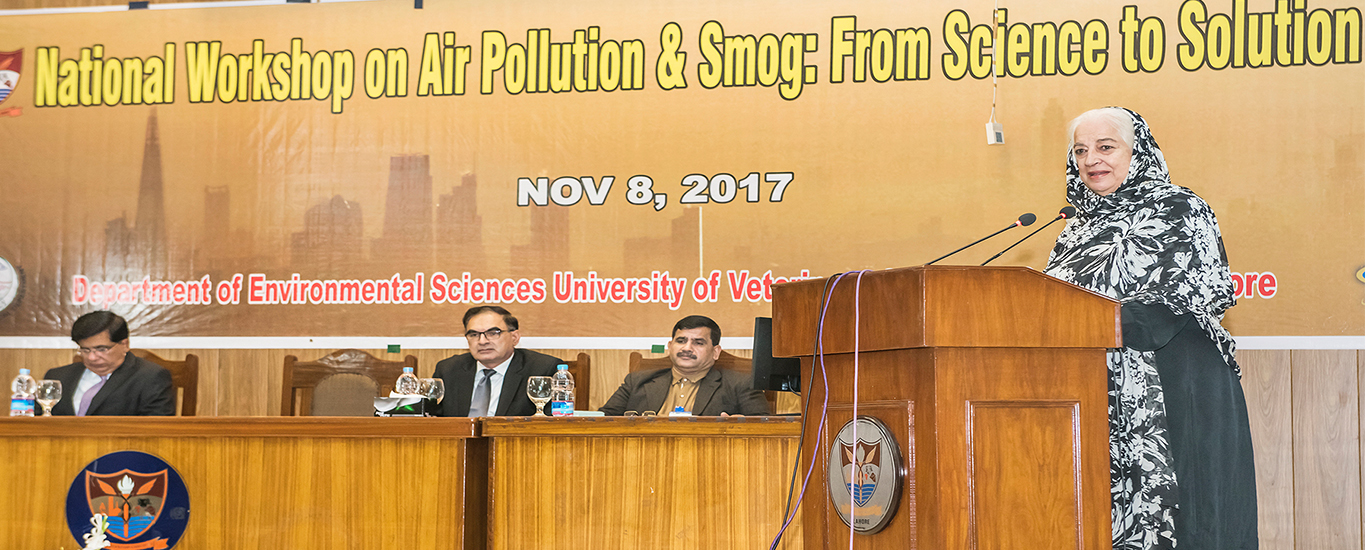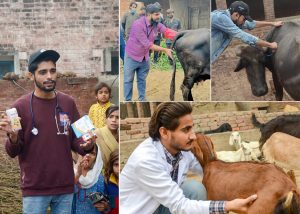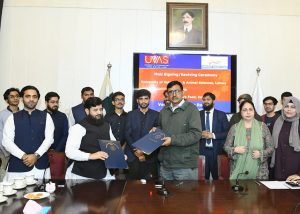
LAHORE: The Department of Environmental Sciences of the University of Veterinary and Animal Sciences (UVAS) Lahore recently arranged a national workshop on “Air Pollution & Smog: From Science to Solution”.
Punjab Minister for Environment Protection Ms Zakia Shahnawaz Khan presided over the inaugural session of the workshop while Vice-Chancellor Meritorious Prof Dr Talat Naseer Pasha, Chief Meteorologist Flood Forecasting Division Lahore Muhammad Riaz, Dean Faculty of Biosciences Prof Dr Habib-ur-Rehman, Chairman Department of Environmental Sciences Dr Saif-ur-Rehman Kashif and a number of students, researchers, environmental experts and faculty members attended.
Speaking on the occasion, Ms Zakia Shahnawaz said that air pollution and smog are a serious challenge and the Punjab government is actively working to address it. She said that clean air and water are basic needs for a healthy life and the government with private partnership is taking steps to ensure safe air and clean water for its citizens. Speaking about the causes of smog in Punjab, she said that India burnt residue of paddy crop and the rising smoke from across the border has penetrated into Punjab and is causing smog. Emissions from industries and vehicles are also one of the causes of smog and various diseases. Lauding the services of the university, the minister said that veterinarians are working for the noble cause of treating and caring of animals.
Prof Dr Talat Naseer Pasha said that planting of more trees is a dire need, as this is a cost-effective way to tackle air pollution and smog. He described the history of UVAS, its five faculties, campuses, undergraduate & postgraduate degree programmes, development projects including establishment of Cholistan Veterinary University Bahawalpur, Khan Bahadar Choudhry Mushtaq Ahmed College of Veterinary and Animal Sciences, Narowal and running research projects won by faculty members from national and international funding agencies.
Earlier, Dr Saif-ur-Rehman Kashif said that air pollution is one of the prime slayers in the world. He said that according to 2014 World Bank report on air quality in Pakistan, the air quality in Lahore gets worse in winter due to delayed rainfall and cold. Further, the continuously dry conditions concentrate all the pollutants in the lower levels of the atmosphere causing the smog to spread all over the Punjab.
The aim of the conference was to discuss the various causes of smog formation and meteorological conditions leading to smog formation, mitigation measures for the air pollution problems, and share information about air quality available to public and suggest recommendations for improving air quality in Lahore.







